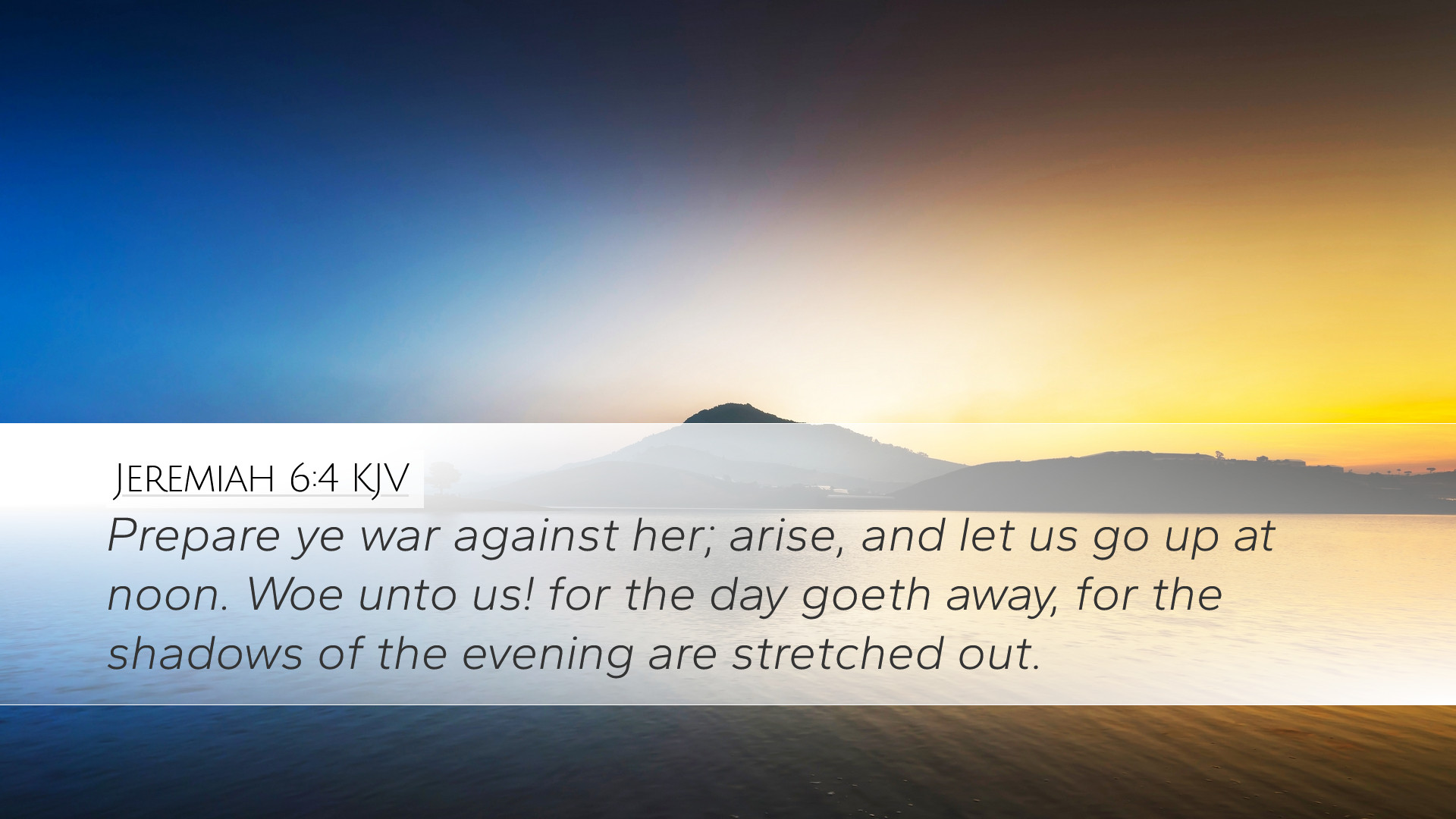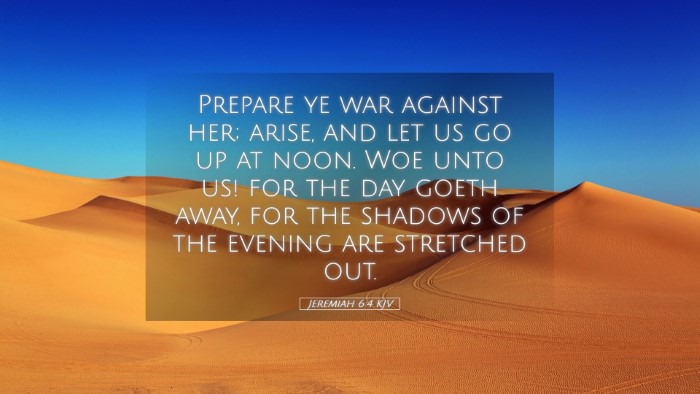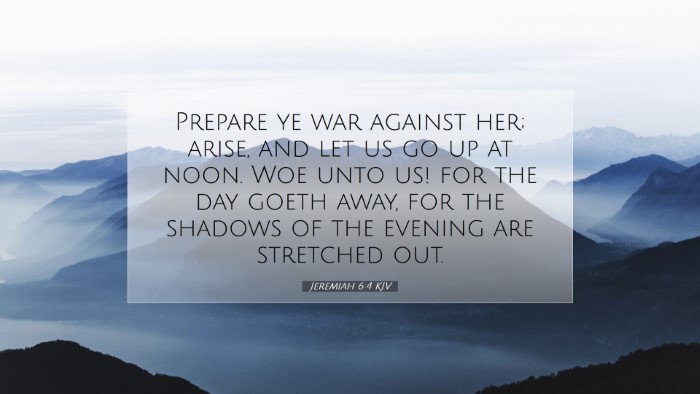Commentary on Jeremiah 6:4
In Jeremiah 6:4, we encounter the urgent call of the prophet as he implores his people to prepare for the impending judgment and calamity that is about to befall them. This verse serves as a poignant reminder of the gravity of their situation and the necessity of heeding the warning of God.
Verse Context
The greater context of Jeremiah's prophecies highlights a nation in moral and spiritual decay, largely due to relentless disobedience to God. In this chapter, the prophet articulates a call to arms, both literally against their enemies, and figuratively in a spiritual battle for the souls of the people.
Exegesis of Jeremiah 6:4
“Prepare ye war against her; arise, and let us go up at noon.” This command resonates with a sense of urgency and readiness for conflict. The terms "prepare" and "arise" imply a need for action and vigilance. The mention of "noon" suggests that the time for procrastination is past; it is a time when, traditionally, a rest might be expected, yet it is the very hour when the call to battle is sounded.
Insights from Matthew Henry
Matthew Henry emphasizes that the call to war in this verse is both literal and metaphorical. He explains that this passage highlights the impending invasion by the Babylonians and suggests that the people are to prepare for the inevitable conflict by recognizing their spiritual state and engaging in self-examination. Henry elaborates that the prophet not only warns of physical battles but encourages the people to engage in spiritual warfare against the sin that has ensnared them.
Reflections by Albert Barnes
Albert Barnes further notes that the phrase "prepare ye war" conveys a sense of determination and seriousness about the consequences the Israelites face. He interprets “arising” as an awakening of the people from their spiritual slumber. Barnes points out that the reference to "noon" metaphorically denotes the height of their sinfulness and ignorance. Thus, it becomes essential for the people to confront the stark reality of their circumstances.
Observations from Adam Clarke
Adam Clarke underscores the notion of preparation in a time of crisis. He argues that this preparation is not merely physical but involves a heart turned back to God. Clarke discusses the significance of moving forth at noon, implying that it is high time to act decisively rather than remaining passive. He asserts that for believers today, this is an invitation to awaken from spiritual lethargy and actively engage in the work of the Kingdom.
Theological Implications
The implications of Jeremiah 6:4 for contemporary readers are profound. It stresses the urgency of spiritual readiness in the face of societal collapse and moral degradation. As such, the verse serves as a clarion call for pastors, theologians, and scholars to be vigilant in prayer, preaching, and teaching, ensuring that they prepare themselves and their communities for the spiritual battles that are waged daily.
Lessons for the Church
- Awareness of Spiritual Warfare: Just as Jeremiah called Israel to prepare for war, today’s church must recognize the spiritual battles it faces against sin, secularism, and apathy.
- Call to Action: The urgency conveyed in the text requires an active response from believers, moving from complacency to proactive faith.
- Importance of Community: The call is collective, indicating the necessity for church unity in preparations for both spiritual warfare and ethical living.
- Continual Repentance: Just as Israel needed to turn back to God, the church must continuously seek the Lord’s guidance and forgiveness.
Conclusion
Jeremiah 6:4 stands as a profound reminder of the need for preparation in times of crisis. As students, pastors, and scholars reflect on this verse, they are called not only to interpret the message but to embody the spirit of readiness and action it demands. By fostering awareness, urgency, and community, believers can effectively confront the challenges of their day, just as those in Jeremiah's time were summoned to do.


